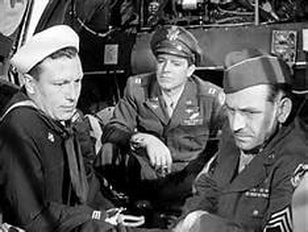 It's time to start book two. I'm reading about soldiers returning after WWI for a story on Appalachia. For a recent Wall Street Journal Book Section article Harvard professor and author Jane Kamensky was asked to suggest works that best reflect the impact of wartime. I decided to read a few. I re-read The Prelude by William Wordsworth for the first time since college, and I have a library request in for Rebecca West's The Return of the Soldier (1918). There's a wait list on the book. Given the publication date, that's probably due to Kamensky's article. MacKinlay Kantor I'd never read Kantor. His Pulitzer Prize-winning Andersonville is a favorite of Civil War buffs like my spouse, but a prison account is too dark for my taste. Based on Kamensky's recommendation I decided to get an anthology of his writing and found his 1945 Storyteller. The collection of short stories with his comments after each on how and why he wrote them, and in some cases how readers reacted to them, is an excellent resource for writers and readers of his work. Glory for Me Those who have read Yours in a Hurry or my social media posts know that my family and I are film history aficionados. Arguably the best post-wartime film ever made is the 1946 The Best Years of Our Lives. Three service men (pictured right) of diverse ages and professions with physical and psychological wounds return to their small home town after WWII. Their adjustment to civilian life is difficult. The film is long and heart wrenching. The trailer and selections from the film can be seen on YouTube.The film won seven academy awards that year including best picture, and had the highest ticket gross and viewer attendance of any film since 1939's Gone With the Wind. I knew that Robert E. Sherwood wrote the screenplay, but nowhere in the trailer is MacKinlay Kantor mentioned. I didn't know that the film is based on Kantor's 1945 novella Glory for Me, described by Kamensky as a "bleak blank verse" in comparison to the Norman Rockwell-type screenplay Samuel Goldwyn had expected. Kamensky quotes Kantor: "You lug your War along with you," like a snail bearing a "scaly load that makes your shoulders raw." Kantor reminds us that, "savage too, the weather of a peace." Although the work is about WWII, it certainly reflects the post-Vietnam era and current wartime as well. We've all lived with scars our loved ones carry—in our family's case, my father and father-in-law. Both had psychological scars, and my father carried some physical ones, too. Dad survived the battle of Myitkyina in Burma, and my father-in-law was at D-Day and later in the Battle of the Bulge. Both are gone, but the uniforms, medals and souvenirs remind us of their experiences. They gave the younger and best years of their lives to wartime. What a fitting title for Kantor's story. Jane Kamensky's new book is A Revolution in Color: The World of John Singleton Copley MacKinlay Kantor photo: Goodreads Film facts: Wikipedia
0 Comments
|
Archives
August 2020
Categories
All
|
 RSS Feed
RSS Feed